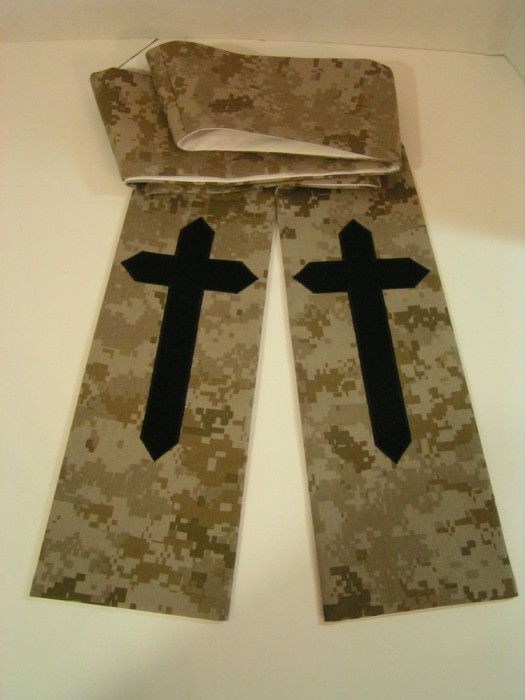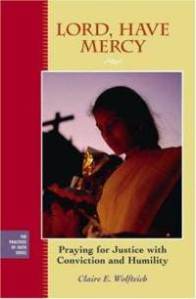Scientists and nutritionists tell me that I need 64 ounces of water each day, eight glasses of eight ounces each and tap water is not my only option. Just walk down the beverage aisle of the grocery store. What a dazzling set of choices awaits me!
I find not just water but also soda water and tonic water. I find mineral springs water, artesian springs, mountain springs, imported from Poland, imported from France, from Maine, fluorinated, and non-fluorinated water.
I know that juices could satisfy my thirst, too. The latest displays hold not just grape juice, apple juice, or orange juice, but all sorts of creative combos: pineapple-banana juice, cranberry combined with raspberry, cranberry combined with strawberry.
I can choose among milks: regular milk, 2% milk, lowfat, buttermilk, lactose-free milk.
I can choose among sodas for weeks and never drink the same item.
I have a new coffee every month, not just regular or decaffeinated, but liqueur-flavored, cinnamon-flavored, Columbian, French roast, Ecuadorian, Honduran, European.
I have beers, nonalcoholic beers, lite beer, imported beer, domestic, micro-brewery, local beer, malt beer, hop beer, honey beer, wheat beer.
Somewhere in the world, right this minute, someone is thinking up a new way to quench my thirst. But I am overwhelmed! Give me a drink!
Two thousand years ago, a Samaritan woman came to an ancient well with the same need. She needed a drink. She was a human being with the same physical needs that I have today. She had probably been coming to Jacob’s well in Shechem, naturally, every day. There were no crowded grocery shelves in those days. She satisfied her thirst daily, with water from the well. It was routine.
But on this day, a stranger is there, the prophet Jesus. She does not recognize him, and he begins to puzzle her. He puzzles her by the mere fact that he, a Jewish man, seeks a conversation with her, a Samaritan woman. He was crossing two social boundaries at once, for Jews had little to do with Samaritans; long-standing theological disputes separated them. They disagreed on worship practices, too. And, secondly, a man would never engage a woman in conversation such as this.
“Give me a drink,” Jesus says. Yes, Jesus asks for a drink from the well. I like verses like these from the Bible, verses where Jesus expresses ordinary human needs. “Give me a drink,” he says here at the well. Later in his life, he would ask his disciples, “Do you have anything here to eat?” Jesus was hungry and thirsty in his time. We sometimes forget in our hyper-spiritual age that Jesus was deeply human. There were days when Jesus craved the same physical satisfactions that we do. It was noon on that day at the well, and Jesus was thirsty.
This Jesus asks the Samaritan woman for a drink. But, soon, he also begins to speak of water, that is, living water, a water that will leave a person never having to thirst again. At first, the Samaritan woman thinks he means flowing water-flowing water as opposed to flat water.
Yes, I suppose that there were meager water choices 2,000 years ago. One could drink flat water, water perhaps that had gathered in a cistern or one could drink flowing water from a spring or well. I figure that the comparison today would be between fizzy and non-fizzy water. Jesus says he has some true fizzy water. It is alive!
“Sir,” the woman asks, “where do you get this living water?” Jesus responds that whoever drinks from the water that he gives will have a river of living water flowing up from inside them!
“Sir,” she says, “give me this water.”
“First, go get your husband,” Jesus commands.
Ahhh, but she has no husband. No, wait. She has had five husbands. But the one she is living with now is not her husband. The image we see now becomes confusing indeed. Does the Samaritan woman live in any formal, committed relationship at all? It looks like she has consumed husband relationships in the same manner that many of us choose something to drink today. We have so many choices that we try to choose them all. Those relationships have not satisfied the Samaritan woman. She has ended up now in a relationship that is not marriage at all.
Yes, human beings may not have always had so many choices about what to drink. Truly, our beverage choices in this day can overwhelm us. But we have always had other kinds of choices. We have always had choices about how to satisfy our deepest needs, our deepest needs for intimacy, for love, for security, for truth itself.
We choose, we choose, we choose, trying to satisfy those deep needs for refreshment, but our meager choices never satisfy. The Rolling Stones were right: I can’t get no satisfaction, and I try and I try and I try.
“First, go get your husband,” Jesus commands.
“I have no husband,” the Samaritan woman says. I have chosen and chosen, but I have no husband.
You and I today have tremendous choices, don’t we? We choose and choose and choose. We try and try and try, but our choices rarely stay with us. We have to choose again the next day.
When Jesus declares that the man she is with is not her husband, the Samaritan woman realizes suddenly that she is face to face, not only with Jesus, but with truth itself. “I perceive you are a prophet!” she exclaims.
A prophet speaks truth, for sure. But a prophet also scares us with such truth. Here is Jesus, offering living water, but that water comes in an awesome package: It is packaged in a truth that reveals us as who we truly are.
In Seminary, I participate in the usual theological discussions that led to fascinating mind games sometimes. I am in school with all sorts of Christians, not just with those of my own denomination. And our denominations disagree on some important matters, including matters like baptism itself. A frequent question is asked of one of our professors. Maybe you have ask it, too. Some folks baptize in the river, we noted, and some folks baptize with just a few drops of water. And so we asked, “How much water does one need for a valid baptism? How much water is sufficient?”
Our professor looked at us seriously, maybe just as seriously as Jesus looked at that Samaritan woman at the well. Our professor put down his pen and said, “A valid baptism needs as much water as it would take to drown in.”
Drown in? What a scary thought! We thought baptisms were supposed to be joyous and happy and renewing! No, he reminded us. Baptism also involves death itself. Baptism means dying to the old life and being born again. One needs enough water, symbolically, to remind us that something is dying here. That is the truth of what we do.
“Sir, give me a drink. Give me some of this living water.” The request of the Samaritan woman is our request today. Give me something that will stay with me, that will keep me alive.
But Jesus’ answer speaks an awesome truth to the woman. Jesus’ answer is spirit and truth. Jesus’ answer is that living water comes very close to being deadly water. Yes, you may drink of this water, but this water will show you the truth about yourself and the truth about your world. That truth may overwhelm you. It may come close to killing you with its clarity.
But it is alive. It is alive with spirit and truth.
After this encounter with the Samaritan woman, there is one other time in Scripture that Jesus is thirsty. Can you remember? It is when Jesus is about to die. Jesus is on the cross. Among his short and plaintive last words are these: “I thirst,” he said. Jesus, remember, is human, deeply human, with the same sets of physical cravings that each of us knows today. Ah, not just physical cravings, but spiritual cravings, too.
When we get to Good Friday, on the cross, Jesus’ thirst is our thirst. “I thirst,” Jesus said, and he takes the thirst of the entire human condition to God.
That is the truth also revealed on the cross. Of all the endless varieties of ways we humans devise to quench our thirst, none of them is finally true. The true satisfaction of our thirst comes from a face-to-face encounter with God, in spirit and in truth. This is satisfaction.
This encounter can only be awesome, even terrifying. It will take us to a realm of spirit and truth where we have never before been. It will involve the shedding of blood and even death itself. Yes, something inside us will die.
The old choices will die. The shallow waters, the flat waters, will dry up, like our shallow and flat relationships will dry up. But God provides living water. God will raise us up to new life, just like God raised up Jesus from the dead, no longer thirsty, but spilling forth water and blood for the salvation of the world.
Give me a drink of that living water, the blood of Jesus poured out for the salvation of the world. Amen





